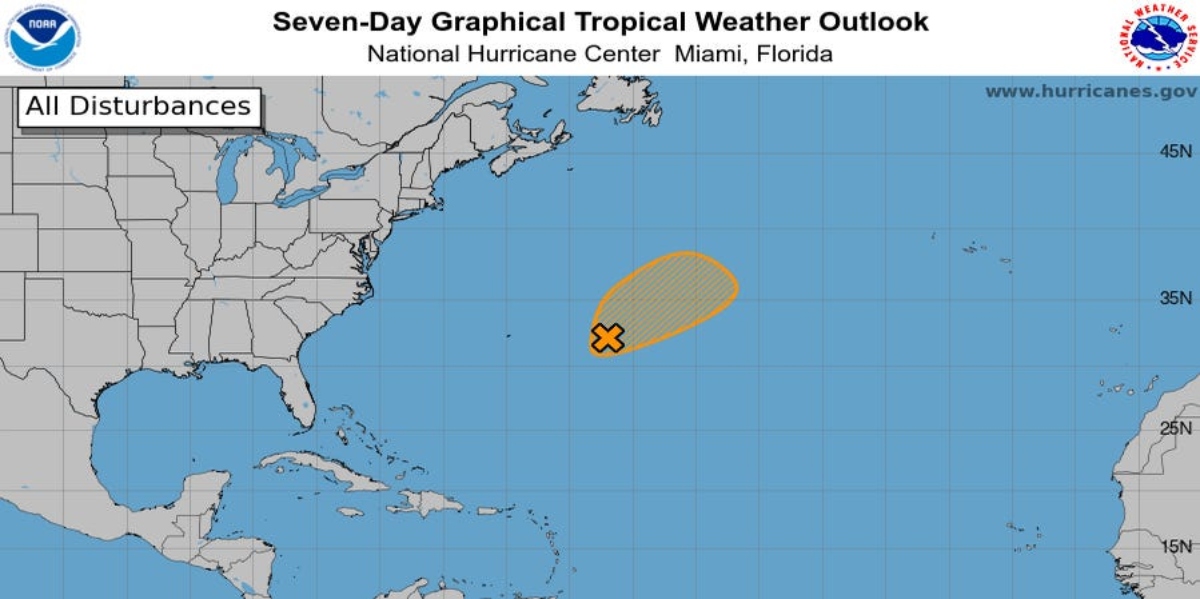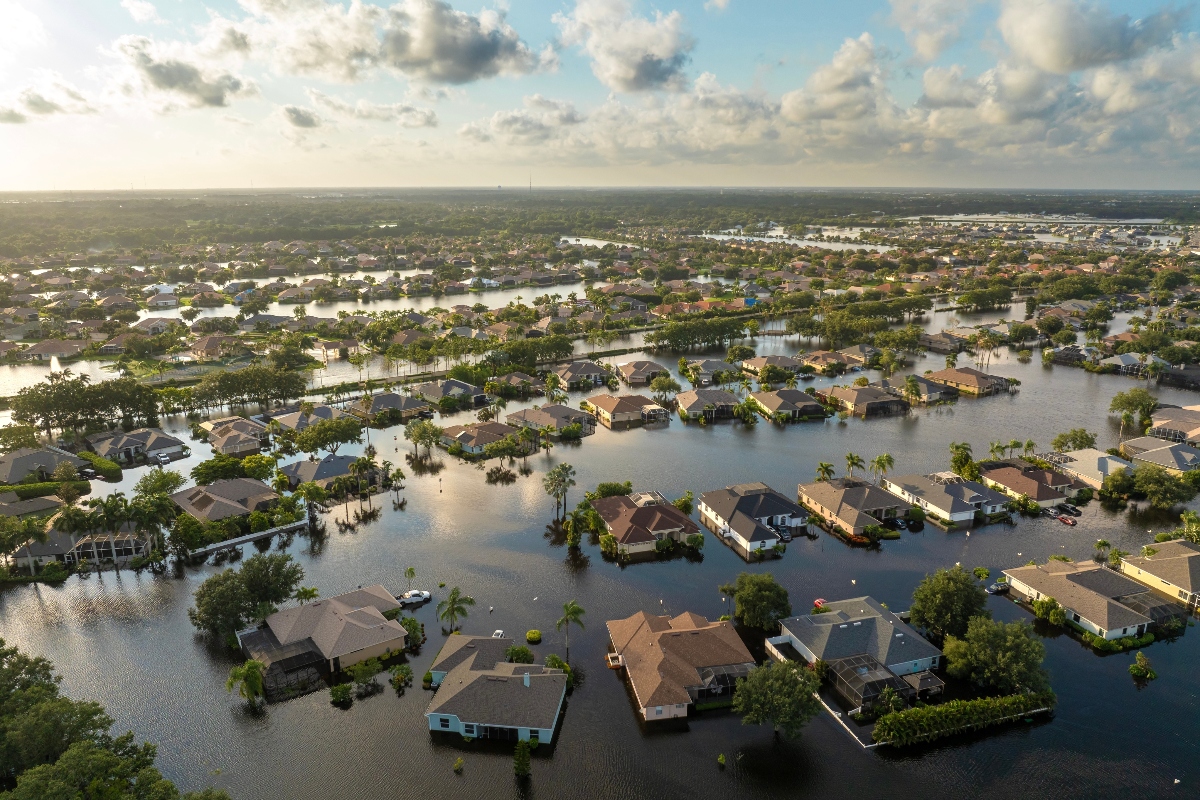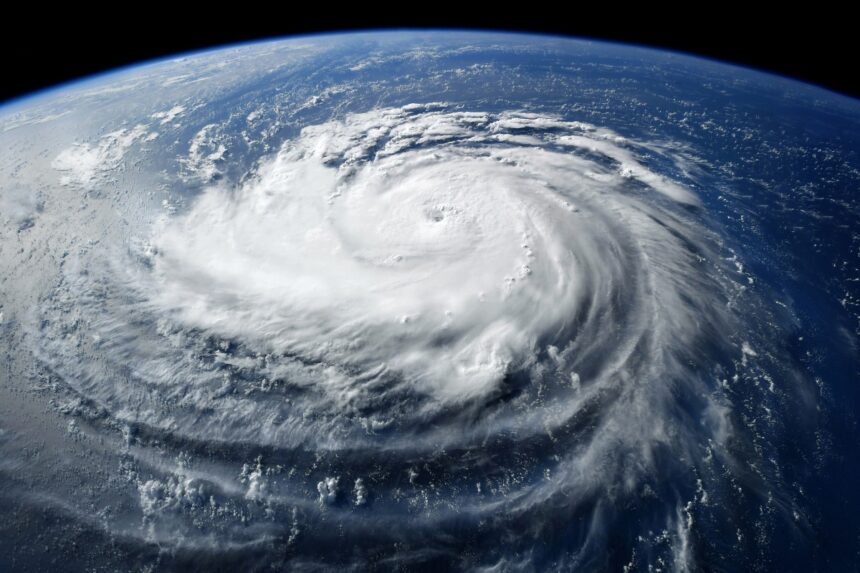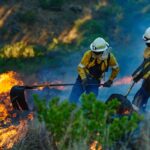With more than three weeks to go before the official start of the 2025 Atlantic hurricane season, the National Hurricane Center(NHC) is monitoring a low pressure area located about 720 kilometers east of Bermuda.
According to the report issued this June 22 at 8:00 pm. ET by specialist Philippe Papin, the system presents showers and thunderstorms with signs of organization in satellite images. There is a 40% chance that it will become a short-lived tropical depression in the next 48 hours. Although it has some potential to develop briefly, it is expected to encounter less favorable atmospheric conditions beginning June 24, which would reduce its chances of evolving into a tropical storm.
No threat to the mainland

The system moves northeastward at a speed of 8 to 16 km/h over the open central Atlantic.
For the moment, it does not represent any danger to coastal areas or nearby populations, so monitoring is maintained as a preventive measure.
This possible phenomenon would be the first to be named within a hurricane season that officially began on June 1.
Above-average activity is expected, with more than a dozen named storms.
Activity also in the Pacific

In contrast, the eastern Pacific basin has already recorded five named storms since the start of its season on May 15.
One of these was Hurricane Erick, which impacted the southern coast of Mexico with sustained winds of up to 125 mph (over 200 km/h).
Reaching category 3 on the Saffir-Simpson scale.
The phenomenon left severe damage, including sunken vessels and flooding, according to Reuters reports.
In addition, another system off the coast of Central America has a 70% chance of becoming a tropical depression later this week.
Although it has not yet fully evolved, it is expected to produce heavy rains in Costa Rica, Nicaragua, El Salvador and Guatemala during the next few days.
Preparation is key

Although this system does not pose a direct threat, National Hurricane Center Director Michael Brennan reminds that “it only takes one storm to ruin a family’s year.”
Therefore, he is calling on residents of hurricane-prone areas, including Texas, Florida and Puerto Rico, to prepare in advance.
Above-average activity is expected
As well as to review evacuation plans and have an updated emergency kit.
For more information, visit QuéOnnda.com.























